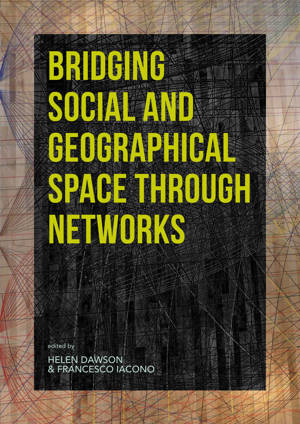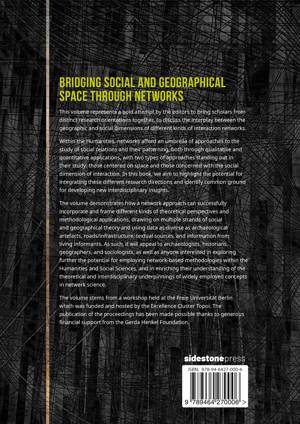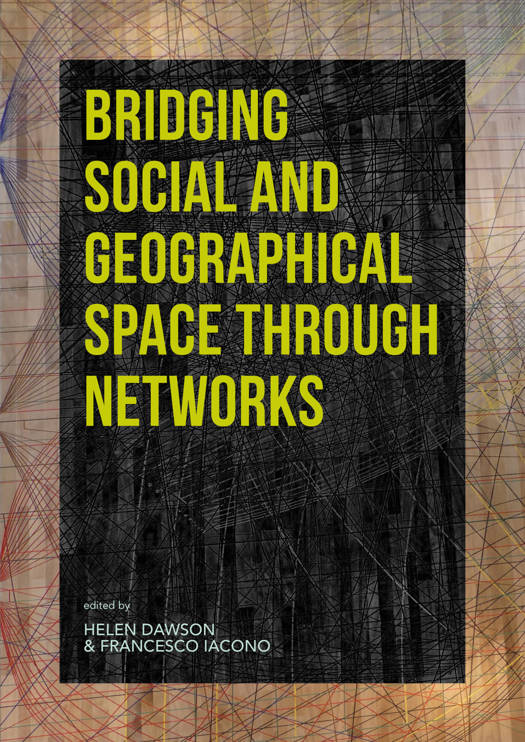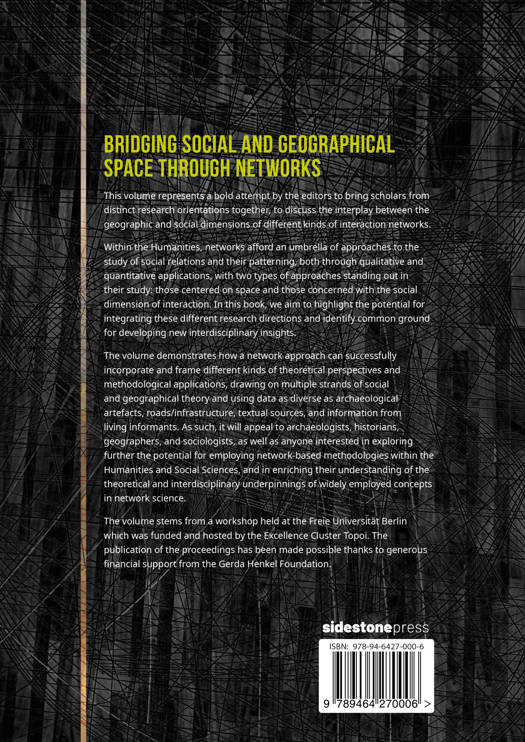
- Retrait gratuit dans votre magasin Club
- 7.000.000 titres dans notre catalogue
- Payer en toute sécurité
- Toujours un magasin près de chez vous
- Retrait gratuit dans votre magasin Club
- 7.000.0000 titres dans notre catalogue
- Payer en toute sécurité
- Toujours un magasin près de chez vous


104,95 €
+ 209 points
Format
Description
This volume represents a bold attempt by the editors to bring scholars from distinct research orientations together, to discuss the interplay between the geographic and social dimensions of different kinds of interaction networks.
Within the humanities, networks afford an umbrella of approaches to the study of social relations and their patterning, both through qualitative and quantitative applications, with two main perspectives standing out: those centered on space and those concerned with the social dimension of interaction. In this book, we aim to highlight the potential for integrating these different research directions and identify common ground for developing new interdisciplinary insights.
The volume demonstrates how a network approach can successfully incorporate and frame different kinds of theoretical perspectives and methodological applications, drawing on multiple strands of social and geographical theory and using data as diverse as archaeological artifacts, roads/infrastructure, textual sources, and information from living informants. As such, it will appeal to archaeologists, historians, geographers, and sociologists, as well as anyone interested in exploring further the potential for employing network-based methodologies within the Humanities and Social Sciences, and in enriching their understanding of the theoretical and interdisciplinary underpinnings of widely employed concepts in network science.
The volume stems from a workshop held at the Freie Universität Berlin which was funded and hosted by the Excellence Cluster Topoi. The publication of the proceedings has been made possible thanks to generous financial support from the Gerda Henkel Foundation.
Within the humanities, networks afford an umbrella of approaches to the study of social relations and their patterning, both through qualitative and quantitative applications, with two main perspectives standing out: those centered on space and those concerned with the social dimension of interaction. In this book, we aim to highlight the potential for integrating these different research directions and identify common ground for developing new interdisciplinary insights.
The volume demonstrates how a network approach can successfully incorporate and frame different kinds of theoretical perspectives and methodological applications, drawing on multiple strands of social and geographical theory and using data as diverse as archaeological artifacts, roads/infrastructure, textual sources, and information from living informants. As such, it will appeal to archaeologists, historians, geographers, and sociologists, as well as anyone interested in exploring further the potential for employing network-based methodologies within the Humanities and Social Sciences, and in enriching their understanding of the theoretical and interdisciplinary underpinnings of widely employed concepts in network science.
The volume stems from a workshop held at the Freie Universität Berlin which was funded and hosted by the Excellence Cluster Topoi. The publication of the proceedings has been made possible thanks to generous financial support from the Gerda Henkel Foundation.
Spécifications
Parties prenantes
- Auteur(s) :
- Editeur:
Contenu
- Nombre de pages :
- 130
- Langue:
- Anglais
Caractéristiques
- EAN:
- 9789464270013
- Date de parution :
- 30-04-21
- Format:
- Livre relié
- Format numérique:
- Genaaid
- Dimensions :
- 178 mm x 254 mm

Les avis
Nous publions uniquement les avis qui respectent les conditions requises. Consultez nos conditions pour les avis.







